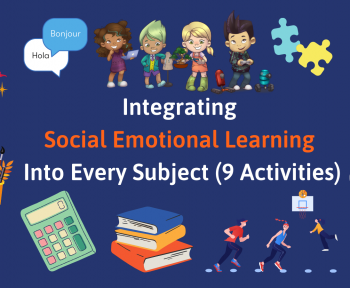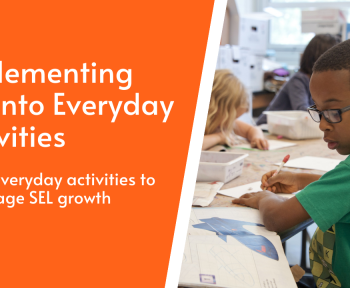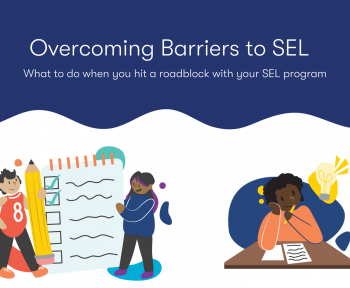The COVID-19 pandemic has had a major impact on each and everyone one of our lives causing stress, worry, and uncertainty. It is important to remember that children are also experiencing this, and often need help in learning how to deal with the emotions that they are facing in a healthy way. This is where the importance of SEL (social-emotional learning) comes into play, as it helps students to understand and manage their emotions to navigate these difficult times.
The Impact of the Pandemic on Children
Even before the pandemic began, almost 1 in 4 young children in the U.S. were found to be living in poverty, which is an issue that also disproportionately affects minorities. With mass unemployment and job loss due to the pandemic, the number of children facing significant adversities continues to increase. The pandemic has led to traumatic experiences for many families which result in children experiencing traumatic stress, which has a negative impact on behaviour, self-regulation, and academic achievement. On top of this, uncertainty is at an all-time high, and children may feel increased anxiety due to a lack of information about the drastic changes that are occurring in their lives.

This increased fear, anxiety, and toxic stress can translate to issues in the school environment, as children can’t focus on learning if they don’t feel safe and supported where they are. Furthermore, remote-learning is challenging for many students, and students who are struggling academically are often the most impacted by these learning environment changes.
The Benefit of SEL Right Now
SEL can foster a sense of safety and be used in conjunction with trauma sensitive practices to best suit children’s individual needs. SEL helps students to manage their emotions in a safe and supportive way, which sets them up perfectly for learning success. It also helps to build positive connections and relationships within the classroom, which school closures and remote learning have made much harder to do. These relationships allow students to develop socially, and contribute to laying the necessary foundation for academic learning. Furthermore, SEL can teach students skills that are needed for successful learning like self-regulation or problem solving, which can help address learning inequalities created by an online school environment.

Although we often think of SEL in the context of how it can benefit children, the importance of SEL to educators and other members of the school community should not be overlooked. SEL helps to support teachers and staff by helping them to manage stress, and build trust amongst their colleagues and students. Overall, this serves to strengthen the school ecosystem and results in a better learning experience for students.
Peekapak Coronavirus Lessons
If you are looking for ways to incorporate social-emotional learning into your classroom in the context of the pandemic, look no further! Peekapak has created 8 specialized SEL pandemic lessons, that teaches children about the pandemic and helps them to address feelings of worry, frustration, boredom, and much more. These lessons can be found here.
Acknowledgements
This article was based on a presentation by the Committee for Children, an organization that strives to promote the safety, well-being, and success of children in school and in life. A link to the presentation slides can be found here, and a recording of the presentation here.
Looking for a technology-based program to teach empathy and other social-emotional skills to elementary aged children? Look no further than Peekapak! Peekapak is an award-winning, social-emotional learning (SEL) platform that uses engaging lessons, stories, and digital games in the classroom and at home. Developed by education experts, Peekapak’s innovative curriculum teaches skills like gratitude, empathy, and self-regulation using literacy, reading, and writing based learning curriculum.


 How to Articles
How to Articles


